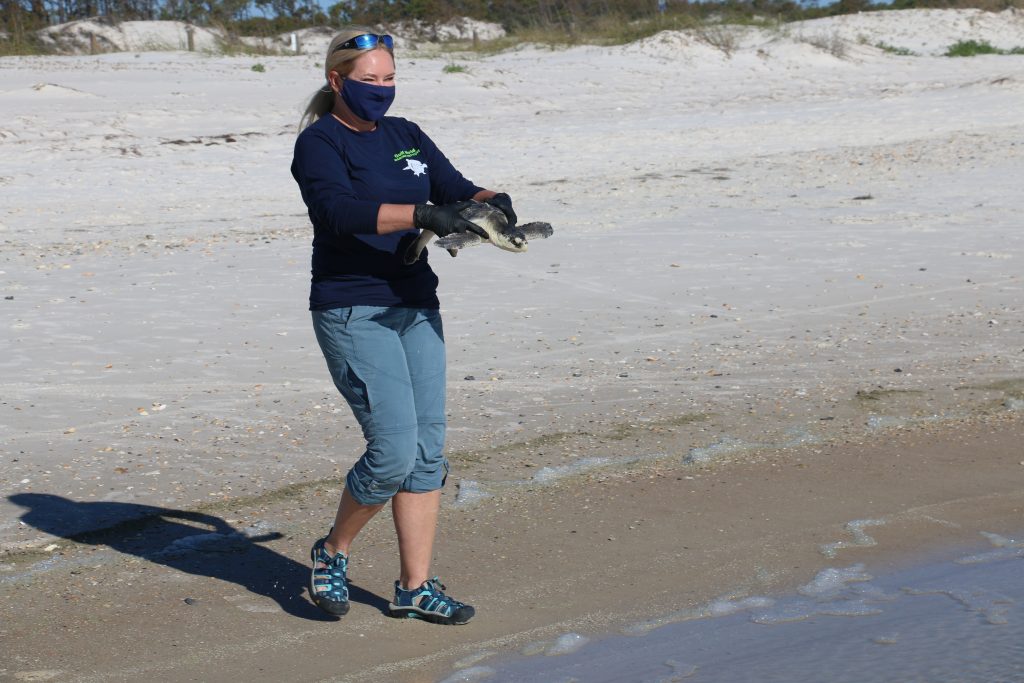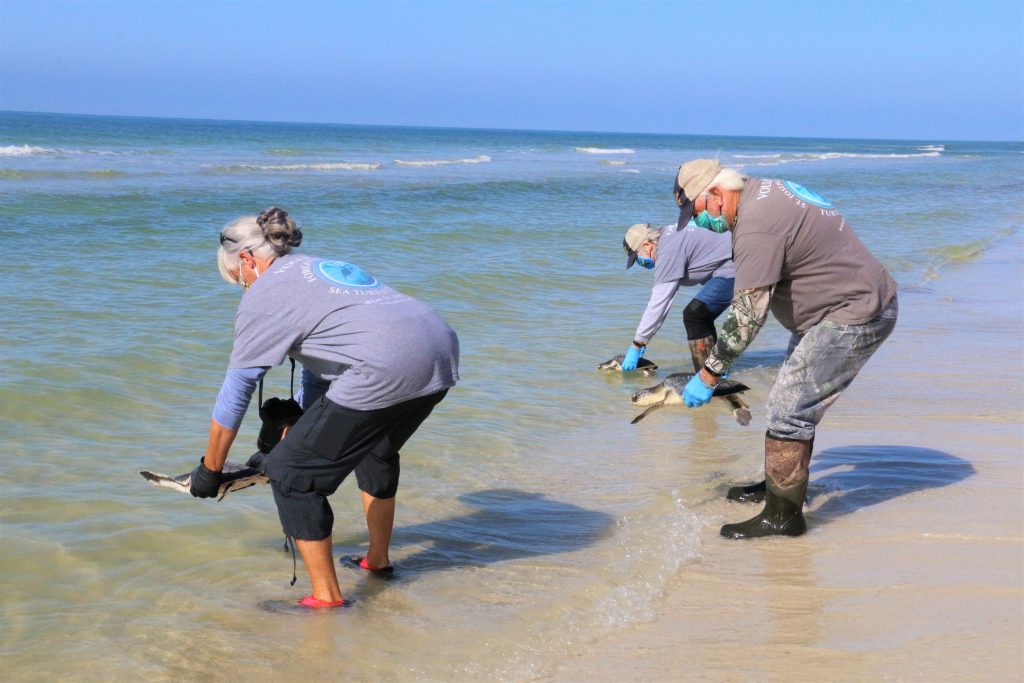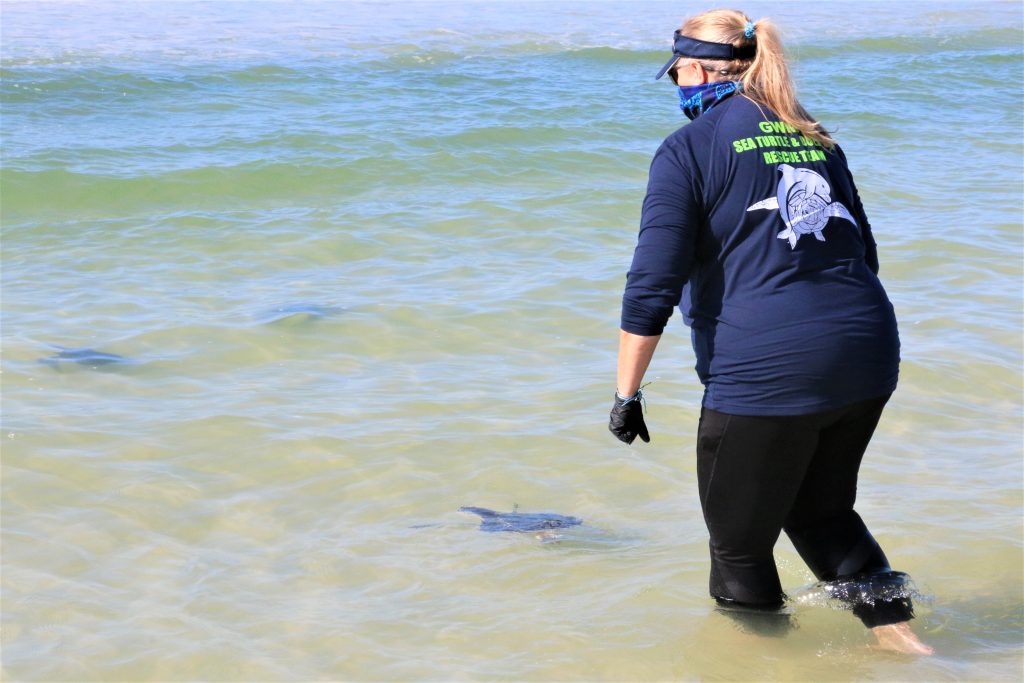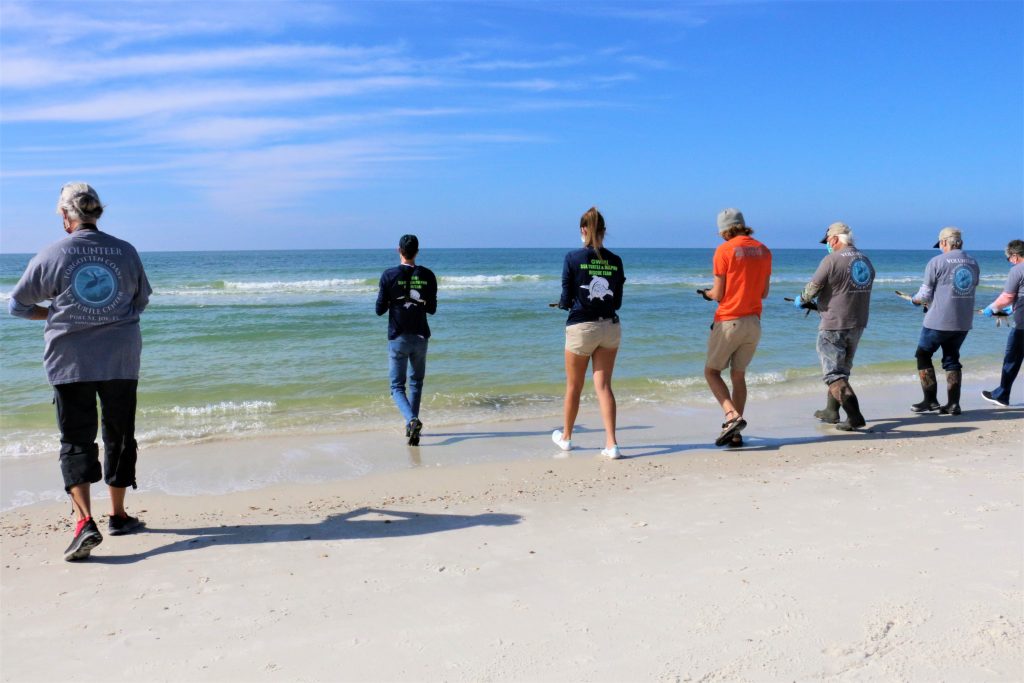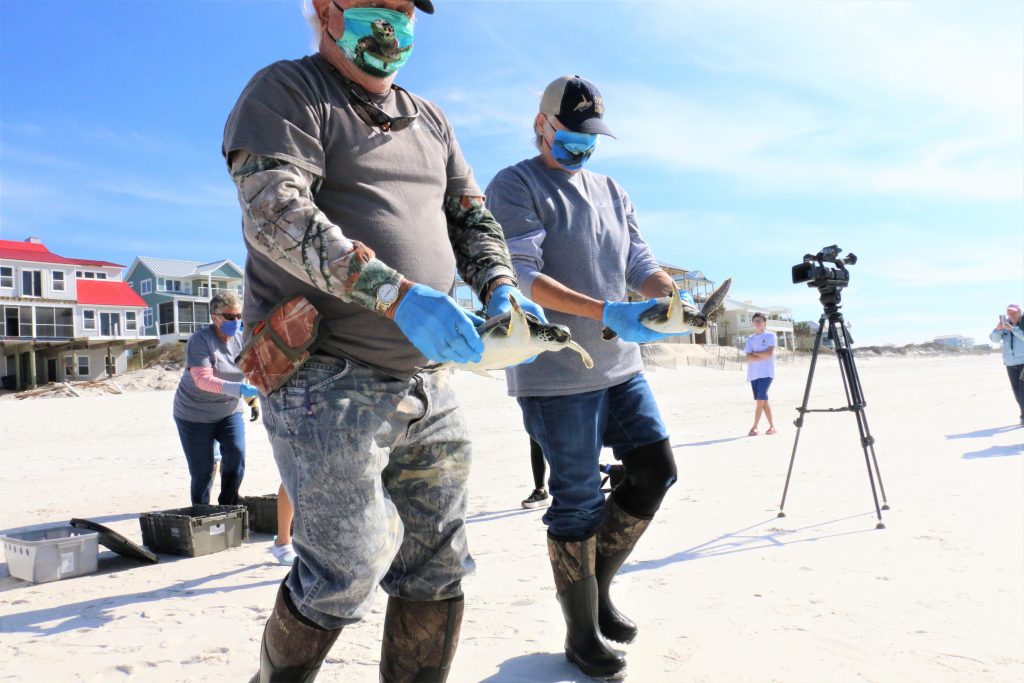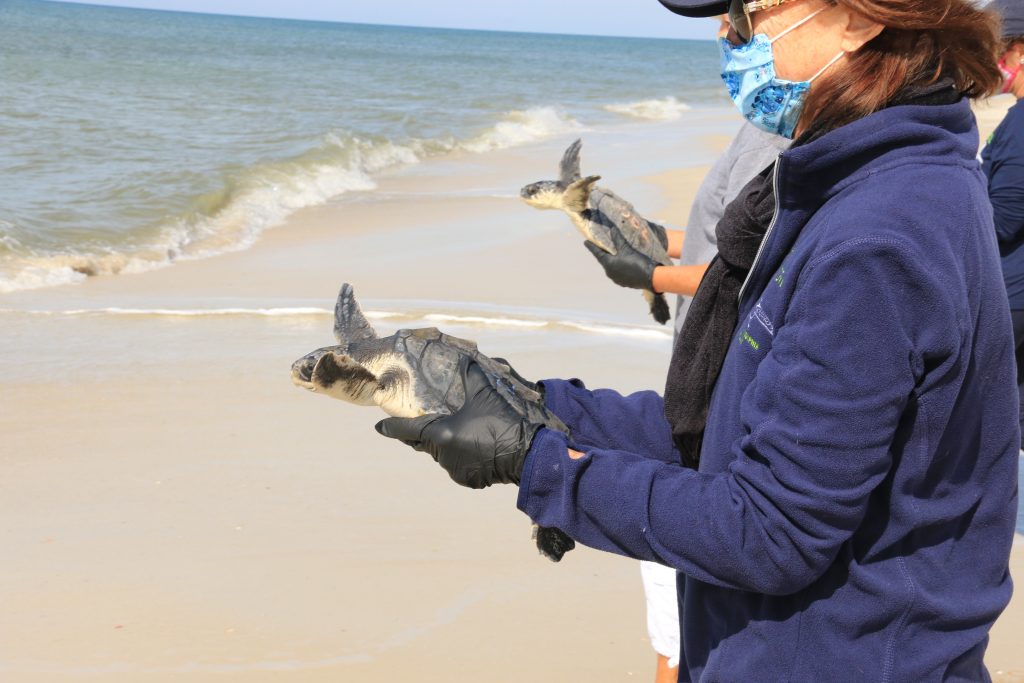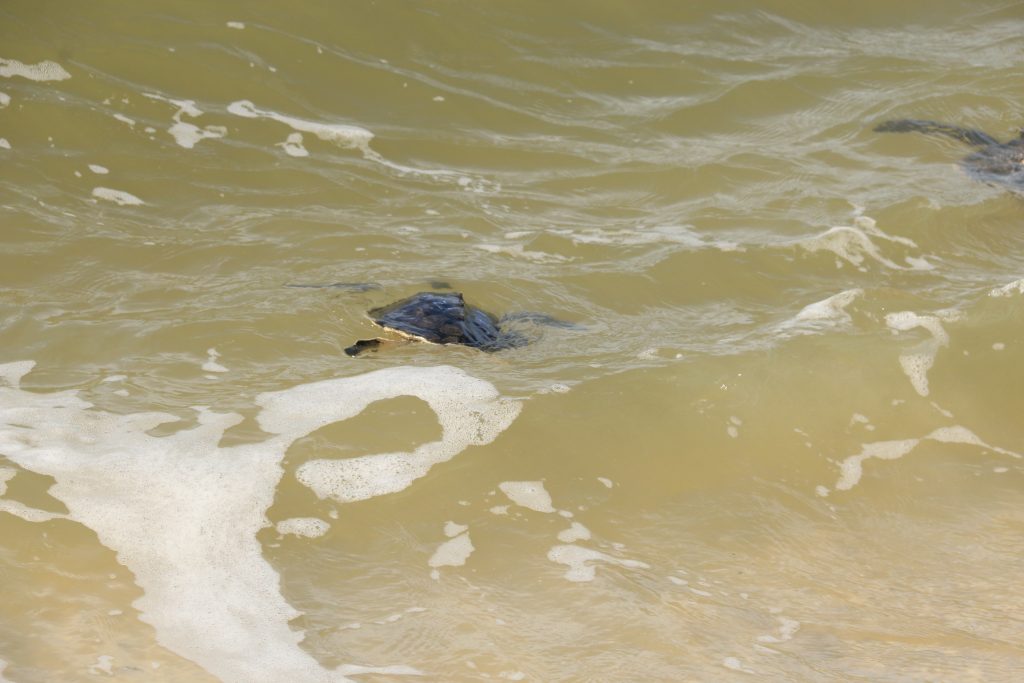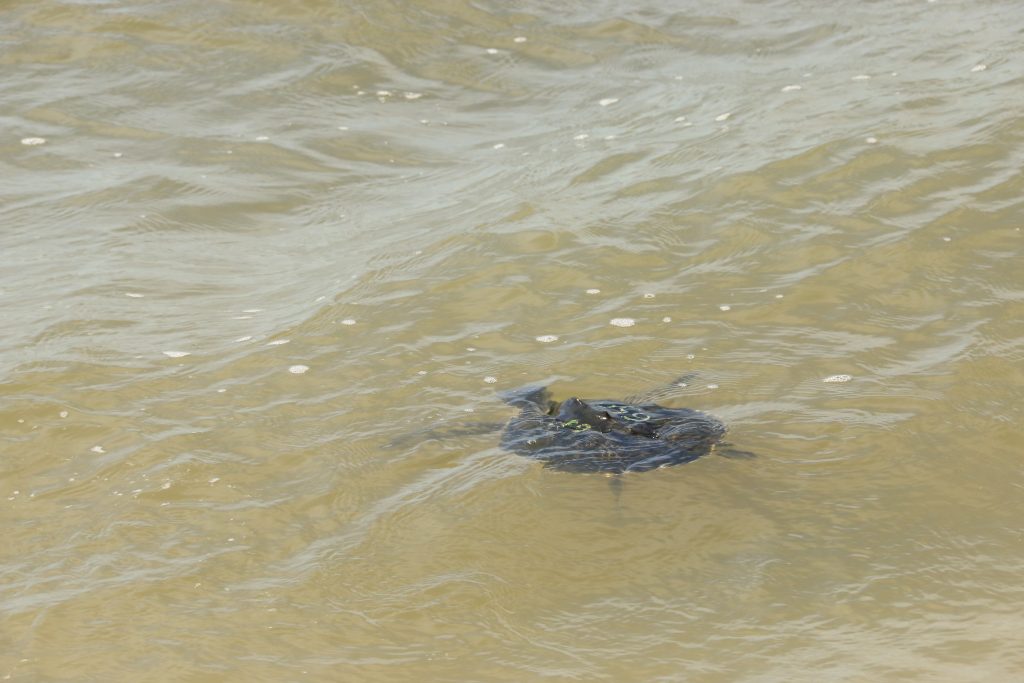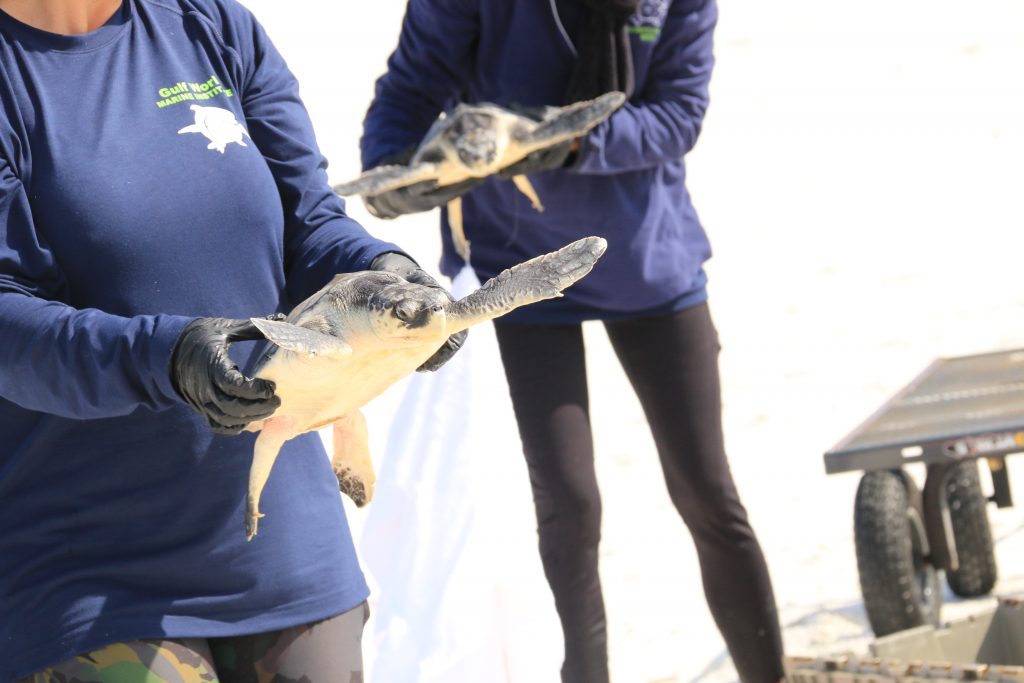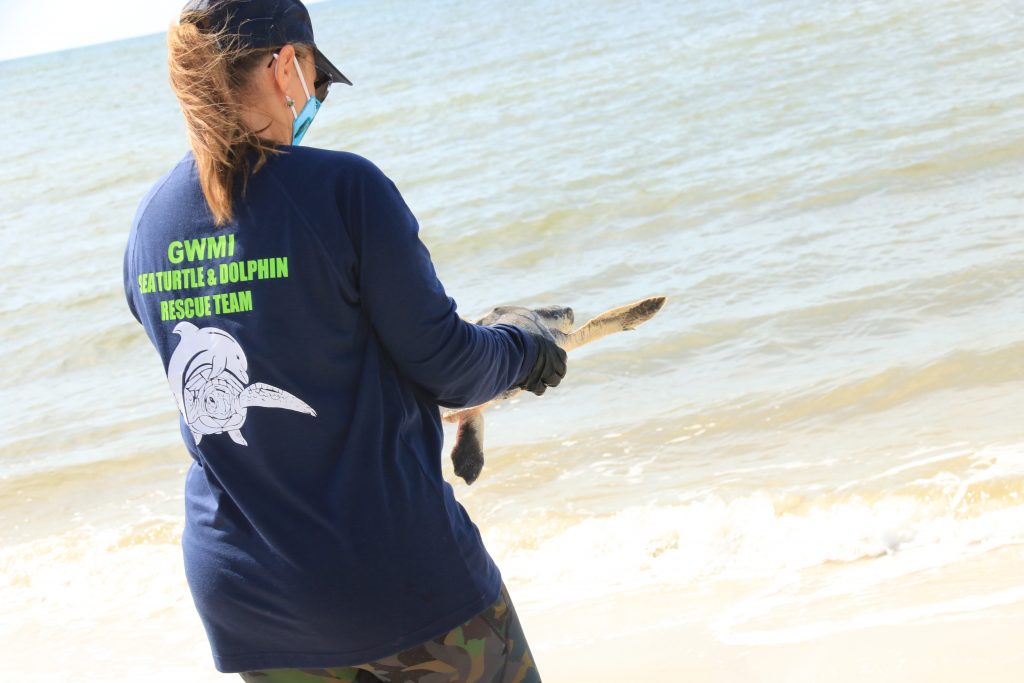Go Back

2020 Cold Stun Season at Gulf World Marine Institute – Updates!
Update: February 2021
Cold-stunned sea turtle strandings in New England have largely stopped for the 2020 season, and Gulf World Marine Institute received a total of 69 sea turtles from Cape Cod facilities! While were were not able to save all of them, the majority have done well. We continue to work with the ones in our care, and have released many already! Keep reading to see photos from our release events so far!
~
Original: November 2020
The cold-stunned sea turtle season has already started off strong in the New England area. Juvenile Kemp’s ridley sea turtles, along with a few other species, are washing up along Cape Cod beaches in large numbers.
Sea turtles are reptiles whose body temperature closely matches the temperature of their environment. Sea turtles can become cold-stunned (or shocked) when the temperatures in shallows bays and estuaries drop below 50 degrees Fahrenheit. These animals are then admitted for medical treatment. Due to the large number of stranded turtles, the New England facilities reach out to other rehabilitation facilities for help. The strategy is to relocate as many animals as possible. This helps to relieve the immediate response area and create vacancies for additional incoming sea turtles. Gulf World Marine Institute (GWMI) participates in these efforts, and has begun receiving turtles! In the upcoming weeks (sometimes months), GWMI will continue treating these animals until they are ready for release. Florida Fish and Wildlife (FWC) gives GWMI the green light for releases! Below this introduction, you will find information about the sea turtles GWMI has received.
Thank you to Turtles Fly Too for coordinating the flights and all of the pilots for generously donating their time for this mission. We would also like to thank Mass Audubon Wellfleet Bay Wildlife Sanctuary, NOAA Fisheries, New England Aquarium, National Marine Life Center, Florida Fish and Wildlife Conservation Commission and all volunteers that are working together to make this possible.
~~~
Flight 1: 17 Kemp’s ridley sea turtles
Arrived November 14th from the New England Aquarium facility in Quincy, Massachusetts
Released: 129, 130, 131, 133, 134, 135, 137, 138, 139, 140, 141, 142, 143, 144, 145, 146, 150
~
Flight 2: 22 Kemp’s ridley sea turtles
Arrived November 21st from the National Marine Life Center in Buzzards Bay, Massachusetts
ID Numbers: 047, 048, 049, 050, 058, 059, 060, 061, 066, 071, 072, 073, 074, 083, 085, 086, 089, 092, 093, 095, 099, 100
~
Flight 3: 30 Kemp’s ridley sea turtles
Arrived December 13th from the New England Aquarium facility in Quincy, Massachusetts
ID Numbers: 603, 640, 641, 652, 653, 657, 658, 659, 661, 662, 663, 666, 669, 674, 675, 682, 685, 689, 717, 721, 722, 723, 724, 725, 728, 730, 732, 733, 734, 736
~~~
Media Coverage:
https://www.mypanhandle.com/news/panama-city-beach/gulf-world-welcomes-seventeen-new-sea-turtles/
https://www.mypanhandle.com/news/cold-stunned-sea-turtles-arrive-at-gulf-world-for-rehabilitation/
https://www.mypanhandle.com/news/panama-city-beach/22-more-cold-stunned-sea-turtles-arrive-in-panama-city-beach/
https://www.mypanhandle.com/news/bay-county/gulf-world-receives-cold-stunned-kemps-ridley-sea-turtles/
https://www.mypanhandle.com/gulf-county/cold-stunned-sea-turtles-released-into-gulf-of-mexico/
~~~
Release Photos!
